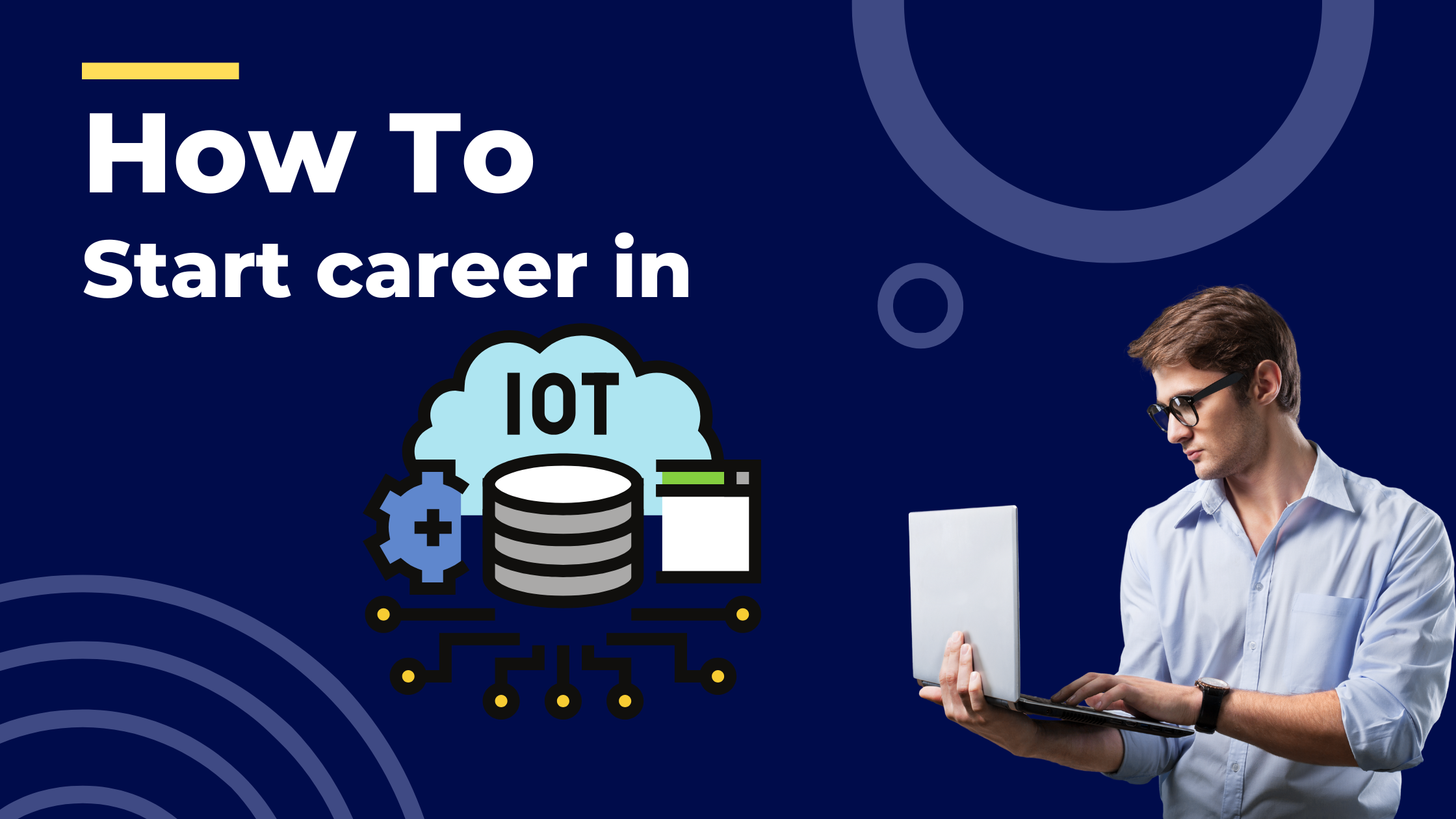How to Start a Career in Internet of Things (IoT)
The Internet of Things (IoT) is revolutionizing the way we live, work, and interact with technology. As an interconnected system of devices that communicate over the internet, IoT has rapidly become one of the most exciting fields in the tech industry. From smart homes to industrial automation, IoT is at the heart of technological advancements. If you're eager to tap into this growing field and start a career in IoT, here’s a guide on how to get started.
1. Understand the Basics of IoT
Before diving into the world of IoT, it’s essential to have a solid understanding of what it is and how it works. IoT refers to the network of physical devices, vehicles, home appliances, and other objects embedded with sensors, software, and connectivity, enabling them to exchange data. These devices communicate via the internet, enabling automation and data collection for enhanced efficiency.
Key Concepts to Understand:
- Sensors and Actuators: These are the devices that gather data and trigger actions based on that data.
- Connectivity: Communication protocols like Wi-Fi, Bluetooth, Zigbee, and cellular networks.
- Cloud Computing and Data Analytics: How the data from IoT devices is processed, analyzed, and stored in the cloud.
2. Get Educated
While a formal degree is not always mandatory in the IoT field, education is still an important part of getting started. You can pursue several avenues to gain the necessary knowledge.
- Degree Programs: A background in computer science, electrical engineering, or software engineering is a strong foundation. Universities offer bachelor’s or master’s degrees specializing in IoT, embedded systems, and related fields.
- Online Courses and Certifications: There are several online platforms like Coursera, edX, and Udemy that offer courses on IoT fundamentals, programming, and hardware development. Certifications from recognized platforms can boost your credibility.
- IoT Bootcamps: These are intensive, short-term programs that teach you IoT concepts and practical skills in a condensed time frame.
3. Master the Required Skills
IoT combines hardware and software, meaning you need a diverse skill set. Here are some critical skills to focus on:
- Programming Languages: Proficiency in languages like Python, C, C++, and JavaScript is important for developing and controlling IoT devices.
- Embedded Systems: IoT devices often have embedded systems, so understanding microcontrollers, sensors, and actuators is essential. Popular platforms include Arduino, Raspberry Pi, and ESP8266.
- Networking and Communication Protocols: Learn about networking protocols (TCP/IP, MQTT, HTTP, etc.) and wireless communication protocols such as Bluetooth, Zigbee, and LoRaWAN.
- Cloud Computing and Data Analytics: IoT devices generate vast amounts of data. Understanding cloud platforms (like AWS IoT, Microsoft Azure IoT) and how to analyze and process this data will be valuable.
- Security: IoT security is a major concern. Knowledge of cybersecurity principles, encryption, and secure communication is essential to ensure the protection of data.
4. Practical Experience
Hands-on experience is crucial to understanding how IoT works in the real world. Here’s how you can gain it:
- DIY Projects: Start building your own IoT projects. Use platforms like Arduino, Raspberry Pi, or ESP32 to create simple IoT applications like a smart light system, temperature monitoring, or automated irrigation.
- Internships: Internships with companies specializing in IoT technologies provide exposure to real-world applications, development cycles, and industry standards.
- Hackathons and Competitions: Participate in IoT-focused hackathons to challenge yourself, learn from others, and network with industry professionals.
5. Build a Portfolio
Showcase your skills through a portfolio. Document the IoT projects you’ve worked on, including the hardware and software components. Highlight the problems you solved, the technologies you used, and the impact of your work. A well-organized portfolio will make you stand out to potential employers or clients.
6. Stay Updated with Industry Trends
The IoT industry is rapidly evolving, with new technologies and trends emerging regularly. Keep up to date by:
- Reading Industry Blogs: Follow popular IoT blogs, research papers, and industry news sources.
- Joining Communities: Participate in online forums and groups like Stack Overflow, Reddit’s IoT subreddit, and LinkedIn groups.
- Attending Conferences and Meetups: Network with professionals, attend webinars, and join IoT conferences to stay informed about new developments.
7. Explore Career Opportunities
IoT is a broad field, with numerous career paths. Some of the common roles include:
- IoT Developer/Engineer: Focus on developing software or firmware for IoT devices.
- Embedded Systems Engineer: Work on the hardware side, designing and programming embedded systems.
- IoT Architect: Design the architecture of IoT systems, ensuring scalability and integration.
- Data Scientist/Analyst: Analyze and interpret the data generated by IoT devices to extract valuable insights.
- IoT Security Expert: Specialize in securing IoT devices and networks from cyber threats.
- Product Manager/Project Manager: Oversee the development and implementation of IoT products or solutions.
8. Consider IoT Startups or Entrepreneurship
The IoT market is booming, and there’s room for innovation. If you have an entrepreneurial spirit, consider starting your own IoT company or developing an IoT-based product. This could range from creating smart devices for consumers to building IoT solutions for businesses.
Conclusion
A career in IoT offers immense opportunities in various industries, from healthcare and agriculture to manufacturing and home automation. Whether you are starting with a degree in a related field or diving into hands-on learning, the key to success lies in continuously developing your technical skills, staying updated with trends, and gaining real-world experience.
IoT is not just about building devices—it’s about creating smarter, more connected systems that transform the world. With the right knowledge, skills, and passion, you can carve out a rewarding career in this dynamic and innovative field.


